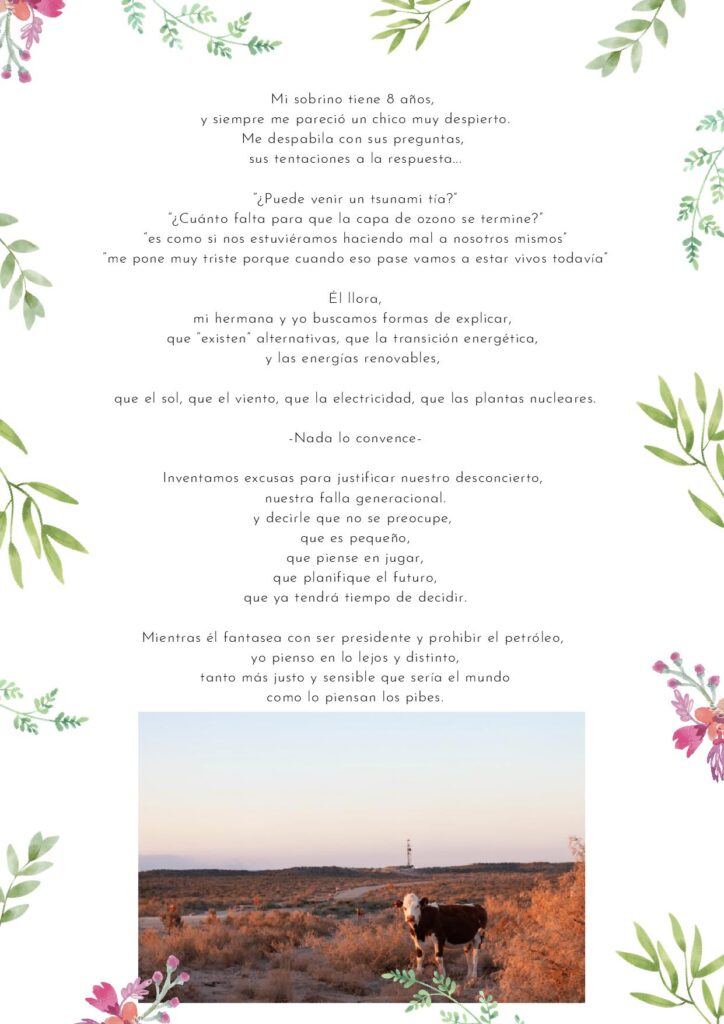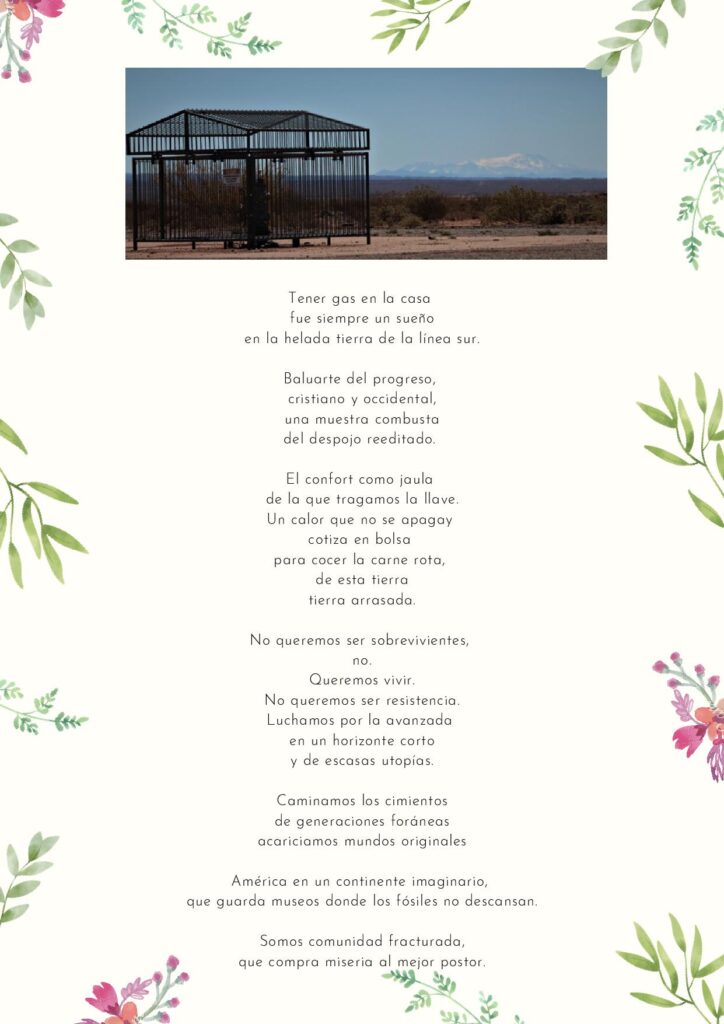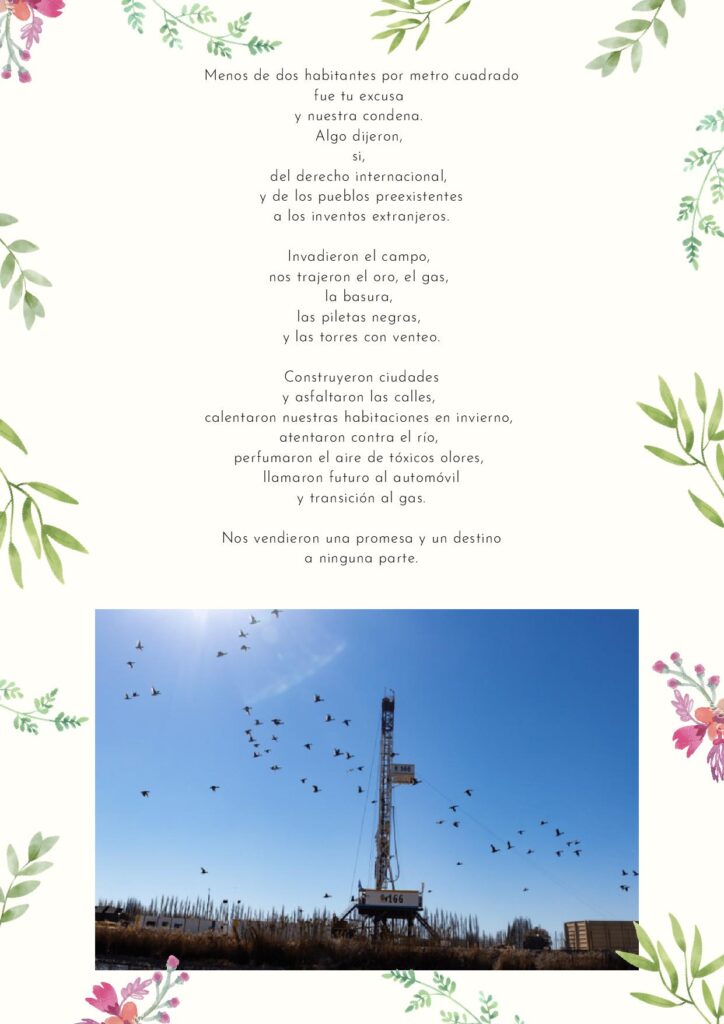As part of our Supply Chains project we have collaborated with artists to produce creative pieces that offer perspectives on why we can’t talk about fossil gas, about climate change, without talking about neocolonialism and justice.
We hope these pieces can open conversations in a different format, and help us think creatively whilst asking ourselves and our movements important questions.
In/version I: Territories bleed through their maps
by María Faciolince Martina & Daniel Macmillen Voskoboynik
The extractive gaze is defined by distance, by cold calculation, by the ‘objective’ stare of profit. It looks through the detached prisms of geological surveys, planimetric maps, and satellite imagery. It sees landscapes as uniform sites of sacrifice, rather than diverse territories of life imbued with communal, cultural and spiritual value. Under this anatomical logic, land is to be managed and optimised in cost-effective ways.
This poetic mapping exercise is an attempt to turn the extractive gaze on its head. We apply the aesthetics of neo-colonial extraction to the cities that have been built on the profits of a history of exploitation, the seats of power for the world’s largest fossil fuel companies. The index accompanying the maps juxtaposes technical language with the poetry of pain. Some of the index numbers don’t appear on the map – these represent invisible violences that are not accounted for. These may be in the blueprint of extraction, but not in its cartography.
Cities are inverted mines (following the metaphor by geologist Gray Bechin). They are both the financial origins and the material destinations of extractive projects. In the imaginary advertised by oil and gas companies, fossil fuels are indispensable resources, extracted responsibly, in communities far away who benefit immensely. The continuity of the fossil fuel industry – and extractive industries as a whole – rests on this fabricated story. A story which silences inevitable questions:
What makes a ‘wasteland’? What if an extractive site was in the middle of what some consider ‘valuable’ or ‘worthy’ land? If these extractive projects can be done in places at the peripheries of our worldview, why can’t they be done in places that are not? How does our gaze differentiate between Paris and Wallmapu? Between London and Cabo Delgado?
Extractive logics demand we subscribe to blatant double standards in the treatment of territories. What would be inadmissible in wealthy European cities, is acceptable – if not imperative – elsewhere.
By disrupting maps and their coordinates, we ask further counter-questions of the extractive gaze: How do we conceive of landscapes? Which images and vocabularies sustain ecological violence? What cartographies dictate geographies of loss? What happens when we begin to see territories as lived and living memory? What falls and what emerges when we abandon a single metric of value?
‘Territories bleed through their maps’ is part of a broader series called In/versiones (Spanish word meaning inversions and investments), a collaborative visual-poetic account of the extractive economy.
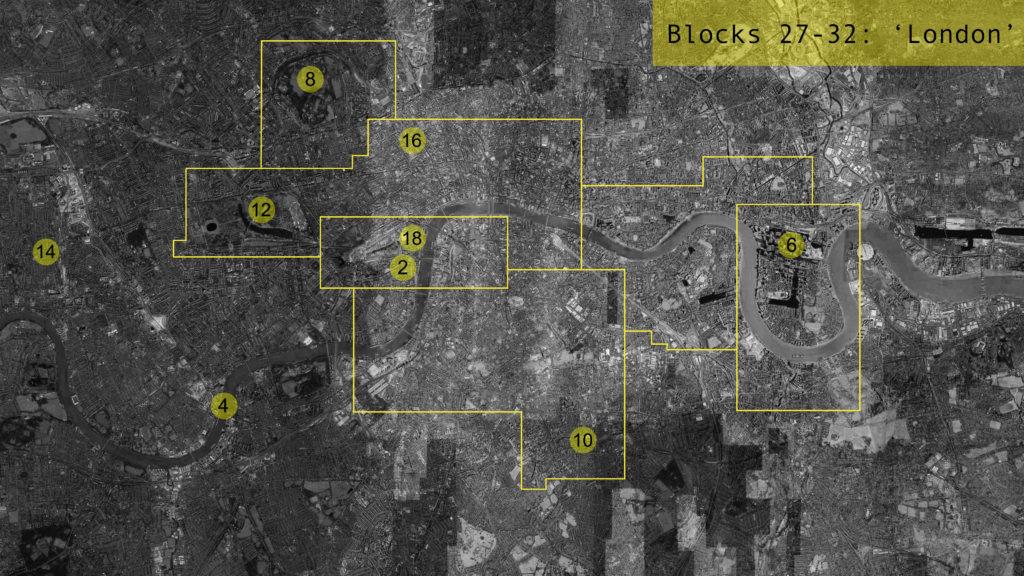
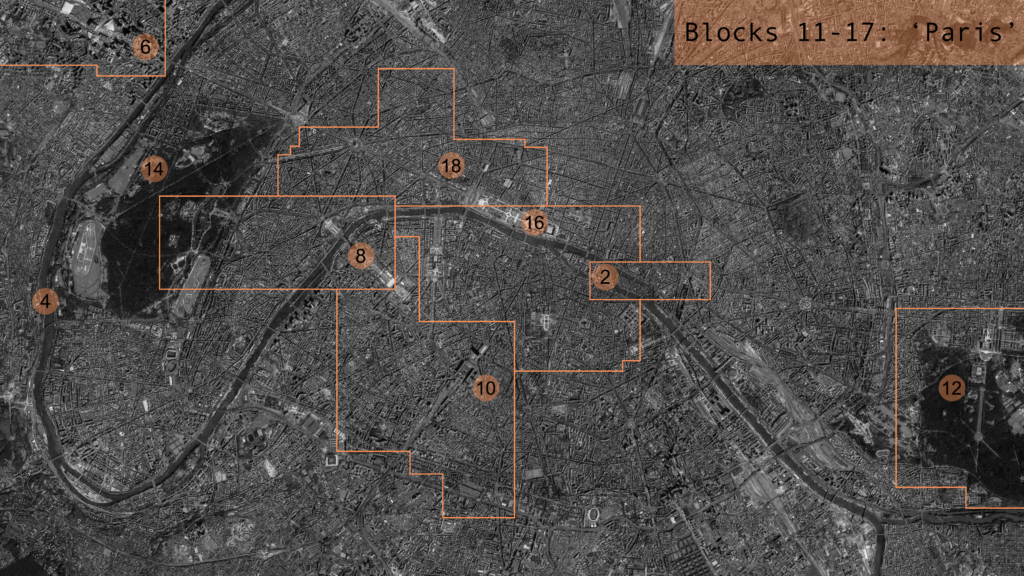
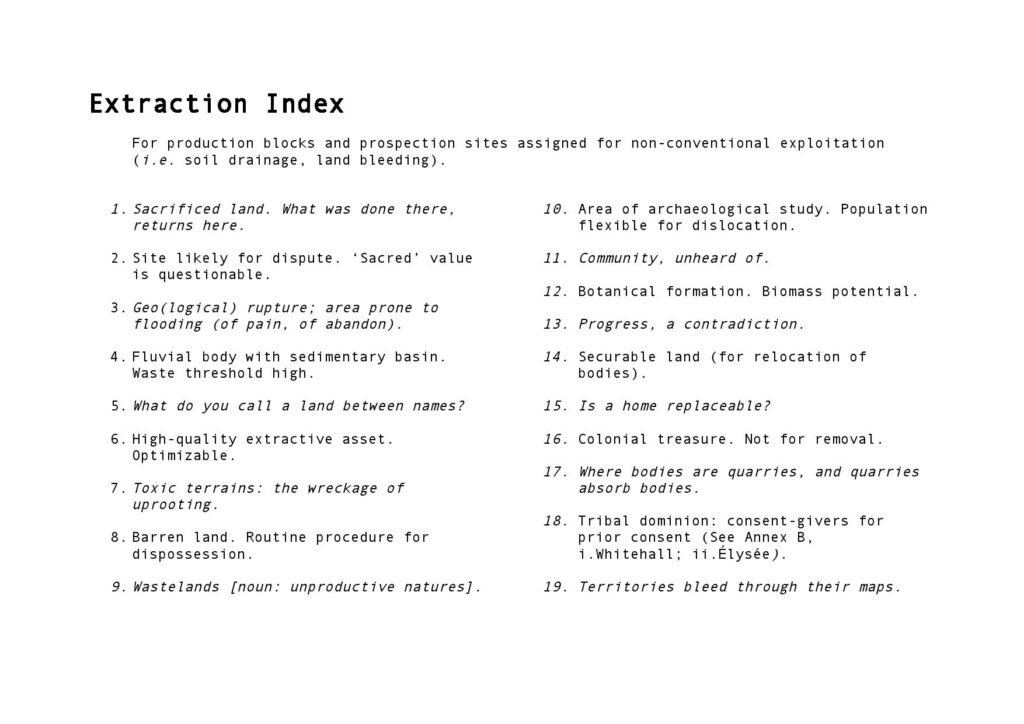
María Faciolince Martina is an anthropologist, multimedia communicator and ecofeminist artist-activist working to shift dominant narratives around ‘development’ and climate justice. She has worked as a researcher with the EJAtlas and currently leads the Power Shifts Project at Oxfam GB, deconstructing how we communicate and think about ‘global issues’ through centering critical voices from the global South.
Daniel Macmillen Voskoboynik is a campaigner, poet and researcher, working at the intersections of climate justice, historical memory, and transformative economics. He is the author of The Memory We Could Be and Partituras para el Viento, and his writing has been published in the Mays Anthology, Open Democracy and African Arguments, among others.
On Thursday 28th January we hosted a lunch expo where María and Daniel presenting their piece and the creative process that led to it. You can watch the recording on our youtube channel or below.
Fracking in Vaca Muerta – Aymama Mur
Ayelén Penchulef, or Aymama Mur, is an Argentinian teacher and poet, who writes from her experiences of living in the province of Neuquén, Mapuche territory, where the Vaca Muerta oil fields are located.
She wrote three poems for this project, relating the experiences of the fossil fuel developments and the environmental and social impacts they cause in Vaca Muerta. For each piece she has also recorded herself reading the poem, so you can chose to either read or listen to them.
Hola, mi nombre es Ayelén Penchulef, aunque también uso el seudónimo Aymama Mur. Además de trabajar como profesora, escribo poesía desde el lugar en el que vivo que es Neuquén, territorio mapuche. Neuquén, provincia ubicada al norte de la patagonia Argentina, es el lugar donde se ubica el yacimiento petrolífero de Vaca Muerta. Es por ese motivo que en colaboración con Gastivist les comparto estos textos inspirados en los procesos de explotación de hidrocarburos, y los daños ambientales y sociales que ello genera.Espero que los textos también sirvan para tensionar cuáles son nuestros parámetros de comodidad y confort en estas vidas in-sostenibles que llevamos en las ciudades a costa del ecocidio ambiental.
Saludos a todes.
Ayelén Penchulef
Photos credit: Martín Álvarez Mullally
